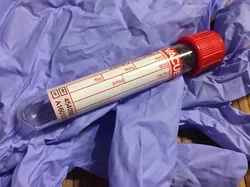
The FDA has just issued a warning that certain tests for lead in blood drawn from patients’ veins since 2014 may have falsely assured those patients that they were not suffering from lead contamination when, in fact, they were. The suspect tests were those typically conducted in doctors’ offices, and using a testing method associated with a company known as Magellan Diagnostics.
In this very early stage of the FDA investigation, much is not clear, such as: how many patients are potentially affected, and why the suspect results seem confined to blood drawn from veins, and not via the typical finger-pricking method. Blood is typically drawn by doctors from patients’ veins only to confirm results obtained via finger-pricking which suggested an unacceptably high lead concentration in the blood. This, of course, raises the concern that patients whose doctors drew blood from their veins because of a concerning finger-prick test may actually have had dangerous levels of lead in their blood but received false assurance that there was no problem as a result of the faulty Magellan Diagnostics test.
Plainly, the stakes are very high here: Lead in the human body has been proven to cause a variety of serious health consequences, including developmental delays in young children. There is no safe level of lead in the human body, thus making the accuracy of testing for lead in blood, especially in children, vital.
Patients who may have received false assurances must not be made to wait for the conclusion of the FDA investigation, which may take many months. The driving concern here should not be to protect the corporate reputation of Magellan Diagnostics, but instead to protect the health of those who may have lead-contaminated blood, but believe otherwise because of a faulty test. The FDA and all health professionals who have tested blood in patients’ veins since 2014 using the Magellan Diagnostic method must immediately alert those patients to this serious problem, and arrange for re-testing of their blood with a provably reliable method.
I would hope that no debate is necessary on this.


"*" indicates required fields